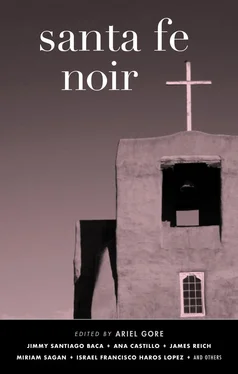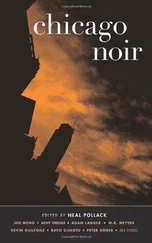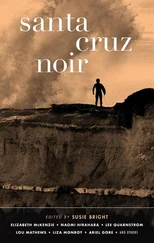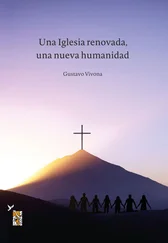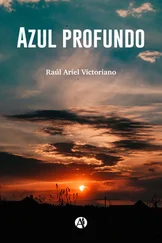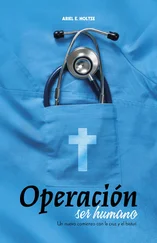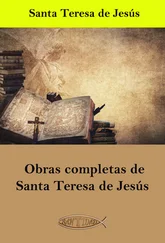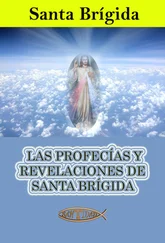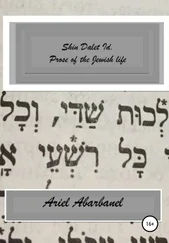Ariel Gore - Santa Fe Noir
Здесь есть возможность читать онлайн «Ariel Gore - Santa Fe Noir» весь текст электронной книги совершенно бесплатно (целиком полную версию без сокращений). В некоторых случаях можно слушать аудио, скачать через торрент в формате fb2 и присутствует краткое содержание. Город: New York, Год выпуска: 2020, ISBN: 2020, Издательство: Akashic Books, Жанр: Детектив, на английском языке. Описание произведения, (предисловие) а так же отзывы посетителей доступны на портале библиотеки ЛибКат.
- Название:Santa Fe Noir
- Автор:
- Издательство:Akashic Books
- Жанр:
- Год:2020
- Город:New York
- ISBN:978-1-61775-722-8
- Рейтинг книги:3 / 5. Голосов: 1
-
Избранное:Добавить в избранное
- Отзывы:
-
Ваша оценка:
- 60
- 1
- 2
- 3
- 4
- 5
Santa Fe Noir: краткое содержание, описание и аннотация
Предлагаем к чтению аннотацию, описание, краткое содержание или предисловие (зависит от того, что написал сам автор книги «Santa Fe Noir»). Если вы не нашли необходимую информацию о книге — напишите в комментариях, мы постараемся отыскать её.
Santa Fe Noir — читать онлайн бесплатно полную книгу (весь текст) целиком
Ниже представлен текст книги, разбитый по страницам. Система сохранения места последней прочитанной страницы, позволяет с удобством читать онлайн бесплатно книгу «Santa Fe Noir», без необходимости каждый раз заново искать на чём Вы остановились. Поставьте закладку, и сможете в любой момент перейти на страницу, на которой закончили чтение.
Интервал:
Закладка:
The water is not for the Dine’é , I was told, we escaped it once .
As a child, Tééhoołtsódii grabbed my legs and pulled me under Morgan Lake, the cooling pond for the power plant. It was my dad who saved me. He grabbed me from what held me under. I never knew what held onto my legs, but water filled my mouth and my throat and my chest. My mom was mad at my dad for taking me there. She yelled at him for allowing me to swim in that dirty water known for death. She reminded my dad of Tééhoołtsódii, the water monster who grabbed those who swam to his world and took them below.
I never swam again.
“Many of our ancestors died during the Long Walk,” my mom said. “The Rio Grande is what swallowed them because the Diné were too cold and too tired, from walking, and could not swim in the winter’s bitter cold water. The US soldiers didn’t care. They proceeded forth to Santa Fe, on their horses, and left those to the water’s hunger.”
Hwéeldi is a haunted memory for the Dine’é.
A loud gasp for air escaped my chest when we reached the first station in Manhattan. The neighboring cast members in the car looked in my direction, as if I were one of the crazies. I closed me eyes again as the music submerged me back into its trance — “Ghost Lights” played.
Jordan showed up on my doorstep. We’d been talking for a few nights before I decided to give him my address. He stood at the opened door with a toothy grin, the same grin he displayed in the photos he texted. He wore that Western blue shirt I liked from his selfies, the one with the pearl-snapped buttons. His shirt was unbuttoned at the top and exposed the thick hairs of his chest. His eyes reflected the desert sky.
I hid behind the door, just a little, because I didn’t want the sun to expose too much of me too soon.
“Oh my,” he said. He leaned in for a hug and threw his arms around me. He smelled of musk, cologne, and coffee. The thickness of his arms wrapped around my back like a boa, bringing me into him. “You’re fucking more beautiful in person than you were in photos,” he said. “Jesus!”
We sat for hours, in the kitchen, chatting. We moved to the chaise longue and relaxed further. Jordan leaned against the armrest and used his hand as a headrest. Two darkened bands wrapped parallel around his forearm. He saw my eyes move in the direction of his headrest. “Youthful tattoo,” he smiled. “For a minute, I was told I was part Indian.”
I smiled.
“I know, I know,” he said, “you’re probably thinking Cherokee princess, right?”
I chuckled like the coyotes of the arroyo.
The sun through the window painted his body with evening light — brushstroked hairs thickened on his arms and the tuft of his chest was exposed. “Shall we move outside?” he asked.
I watched his silhouette darken against the dripping sun.
He opened the patio doors, where my pack of American Spirits rested on the small table. His arms rested on the low stucco wall. I rested mine next to his and we surveyed the land together. He was more beautiful than I could have imagined. He was the white knight we Indians yearned for. He was a trophy — a first-place trophy with blue eyes, blue ribbons. Jordan could be my winner, my prize to take home to my family. His eyes defined the desert sky.
He lit a cigarette from the box. “It’s been years since I’ve smoked,” he said. He closed his eyes as he took the first drag and the tobacco curled in embers. He tilted his head back, extending his throat. Smoke escaped his mouth and crept into his nostrils. “Oh god, I’ve missed this,” he said. He opened his eyes and looked toward the fading sun, emptying his lungs.
Together, we blew clouds into the evening sky. The wind licked the dark hairs of his arms as the ash fluttered into the east, toward the arroyo, toward the ground, away from us.
“Let’s go for a walk,” Jordan whispered.
We walked the edge of Santa Fe High School, and along the Arroyo de los Chamisos Trail — a trail I knew from running daily.
My knees ached with memory.
“Do you know the story of this arroyo?” he asked.
I shook my head.
“La Llorona walks along this bed, they say, each night.” Jordan placed his hands in mine. “They say she cries each night, howling with the guilt of drowning her own children. They say she caught her white husband with another woman; he had another family.”
The sun sank farther behind the Jemez Mountains, and the night sky tipped itself with fire.
The story ran through my head as we walked through the arroyo. It reminded me of a story my dad shared with me once. The woman in my dad’s story had no name, although she committed the same acts as the woman Jordan mentioned: she silenced her babies when she learned of her lover’s betrayal — the Bilagáana, the Naakaii, the foreigner with bluish-green eyes who broke her heart, who walked eternally when she, too, was silenced by Tééhoołtsódii — the water monster.
Jordan laughed.
As we walked through the dim arroyo, Jordan nestled his head against my shoulder and the trees darkened around us. We turned around when finally the orange glow slipped into darkness. The wind sang softly around us, and leaves shuddered, as the ghost dance of night began.
At Times Square, I jumped off the R train to wait for the oncoming 2/3 train.
A voice teased from the crowd: “Are you following me?” It was the blond, who stood behind a woman, who stood next to me. “The 2/3 train,” he said, “maybe we’ll see each other again.”
I shrugged.
The woman rolled her eyes.
The 2/3 train squealed and came to a halt. The doors hissed open. I squeezed into the subway car where passengers stood face-to-face, front-to-back, crotch-to-face, ass-to-ass, and my arms slunk into one of the straps dangling from above, while the blond disappeared into the jungle of bags and scarves and gloves — “Guilty Party.”
I chose Northern Arizona University because it was within our Four Sacred Mountains of Diné Bíkeya. At the base of Dook’o’oosłííd, the sacred mountain of the West, I finished a bachelor’s program and obtained a psychology degree. My parents were happy because I was the first in the family to get a college education. I was older than the other students, but I was glad I’d waited and decided on a career in mental health. My parents threw a big party when I returned to the northwestern part of the reservation.
For months, I looked for a job in my field, but nothing came up in Farmington. I waited tables at the local Applebee’s until finally I got a call about a job at the recovery center. They hired me as a counselor’s aide and I began to learn the stories of Shidine’é who’d succumb to their weaknesses for alcohol. I watched as Shidine’é admitted themselves or were forced to submit to mandatory recovery — many of those, my former customers at Applebee’s, didn’t look me in the eye. For months, I listened to the white practitioners talk among themselves about the abuse and neglect of the Diné Nation and their lack of support to help those walking the streets of Farmington. It was embarrassing to hear them squabble and complain about people like me. Shidine’é were judged and mistreated by the educated white men of the recovery center. The ghosts of the addicted followed me home at night when I listened to their pain speak through my sleep. In secret, I cried with an ache of their trauma — it spoke to me. I felt them. I heard them.
I worked at the treatment center for a year before I had the gall to apply to grad school. My acceptance was to Smith, a private school in Massachusetts. I was nervous to leave the Southwest. I was nervous to be so far away from my family, so far from the land I knew as home. I was scared.
Читать дальшеИнтервал:
Закладка:
Похожие книги на «Santa Fe Noir»
Представляем Вашему вниманию похожие книги на «Santa Fe Noir» списком для выбора. Мы отобрали схожую по названию и смыслу литературу в надежде предоставить читателям больше вариантов отыскать новые, интересные, ещё непрочитанные произведения.
Обсуждение, отзывы о книге «Santa Fe Noir» и просто собственные мнения читателей. Оставьте ваши комментарии, напишите, что Вы думаете о произведении, его смысле или главных героях. Укажите что конкретно понравилось, а что нет, и почему Вы так считаете.
